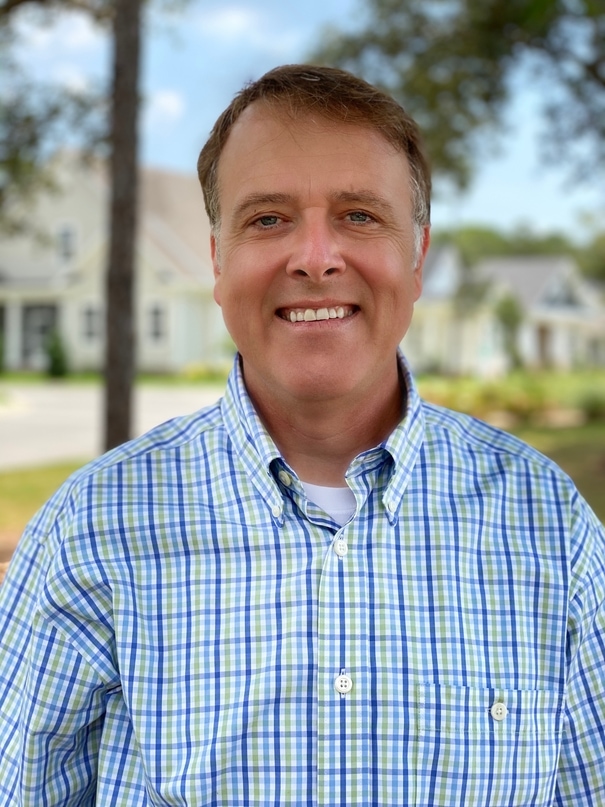Today we would like to announce that Archbishop Beach has asked Canon Steven Saul to serve in clergy support through coaching and mentoring.
Since his ordination, pastoral care has been at the heart of Canon Steven’s ministry. His name may be new to some, but it was while he was Rector of Trinity Anglican Church in Douglasville, GA that he also served as the first Canon to the Ordinary of the newly-formed Anglican Diocese of the South. Under his care, the Diocese welcomed new parishes and clergy – and Trinity went from young church plant to a community active in worship, prayer and healing ministry, and local outreach.
In 2013 he left ADOTS and Trinity Anglican to serve as Canon to the Ordinary of the Diocese of the Western Gulf Coast, providing personal care to all clergy and lay leadership. Since then, he has also served a 3000-member church as the primary contact for pastoral and congregational care.

Canon Steven Saul
“During my last season of ministry, I found the Lord calling me to better understand one of the foundation calls of the church – the call to serve as Christ served,” he says. “In John 10, Jesus calls us to shepherd those who are entrusted to us. It is important to equip and disciple those who are in our church family, but the greatest lesson I have learned is that ‘people don’t care how much you know until they know how much you care.’ Loving those who enter our meeting spaces or gatherings for worship come with the wounds and scars from roads that they have traveled.”
He adds, “We need to be a people who welcome well but also love others beyond the surface of cordial weekly greetings. Relationships are strengthened when the Body of Christ, our church family and our guests, know the voices of those who are caring for and ministering to the greatest and the least in our churches.”
In an interview with ADOTS Communications Associate Rachel Moorman, he talks about the great need for clergy coaching and care, so clergy can in turn shepherd their congregation as Christ has called them.
Can you share a favorite story or experience that represents your ministry?
One of the most rewarding aspects of my most recent ministry opportunity was the gift of reaching out to those who were suffering, lonely, emotionally heartbroken, those dealing with addiction, men and women encountering brokenness in marriage and helping families transition and feel supported in the isolation of COVID-19. How we minister matters. How we pray for and draw near (even in isolated world) to those we encounter matters. I began to think after hours and hours on the phone and on Zoom calls (during COVID-19 isolation), what a great opportunity I have (for Christ) to be present in the lives of those who are needing the Lord. The question was: Would I be really present for him?
There are conversations and times of listening to a member or visitor that I regretted not being fully present to hear from them. Missed opportunities to shepherd the flock are more common than we think and the greatest opportunity to show others that the Lord really cares about them.
Please tell me how you became passionate about clergy care and formation.
During the past years, I have had the great opportunity to work in the area of Church Revitalization with the American Anglican Council. During my time with the AAC, I encountered great opportunities to share ideas with churches in decline and those experiencing hardships. Providing strategies for renewal, growth and incline were key to build a way forward. But one of the common areas that I recognized consistently was the need of clergy lacking leadership support and the impact of debilitating isolation. As a former rector, I recognized these familiar challenges that could be encountered especially when seasons of ministry were toughest.
Serving as the first Canon to the Ordinary in the Diocese of the South, I had the opportunity to serve in the area of credentialing for ordination and saw how important the process for ordination is. Equipping our clergy for success in ministry was significant and sacred work for building a strong diocese. The passion for equipping solid and faithful clergy is the foundation for shepherding and growing churches and disciples for the Lord. Our clergy need strength and consistent support beyond ordination and beyond the first season of ministry. As our world changes so do the demands of clergy and gifted leaders serving in the church. I am concerned that there are clergy who are walking in desert seasons and they may feel as [if] they are walking the journey alone. In our Anglican structure, this should not be. My heart to join with brothers and sisters to walk alongside (especially in difficult seasons) is a great means for overcoming the isolation and destruction that the enemy would like to set forth – breaking down and seeking to destroy what God has intended for good.
Clergy Care provides a means to walk with a brother or sister on the journey especially when journey is challenging. The message to our diocesan clergy should always be: “You are not alone. We are a phone call away and we want to be there for you.”
What does it mean to “coach clergy” and why is it important?
The most important aspects of clergy coaching include:
- The call of the coach to hear the needs expressed
- Support the formulation of a mentoring plan
- Invest in the clergy (professionally, personally)
- Honor the Lord in every meeting – always seeking His direction and guidance.
Because the coaching relationship is not a counseling relationship, there is not a diagnosis or a prognosis to be determined. Instead, the relationship is one that calls the member of clergy to actively participate and in many ways direct the way forward. The clergy coach is called to prayerfully and professionally initiate efforts to move toward the objectives set in the mentoring plan. The meetings should guide and facilitate ways for the member of clergy to move forward in faith – living in obedience.
What have been your greatest joys in walking alongside other clergy?
Seeing the shepherd of a congregation “renew” pastoral ministry. To see new life and vitality come into the role of a shepherd is much like the joy of seeing a leader walk with new purpose and confidence. To know that the fellow clergy has a renewed sense of purpose and direction gives the best foundation for a church to thrive.
What are you excited about in this next chapter of your ministry?
Serving the Diocese of the South as a coach and mentor in Clergy Formation. I am thankful for the integrity and heart of our archbishop and the ingenuity of the diocesan staff who desire to serve the local parishes of ADOTS. I want to be a part of the team who serves to encourage and equip the local parish beginning with the clergy and lay leadership.
